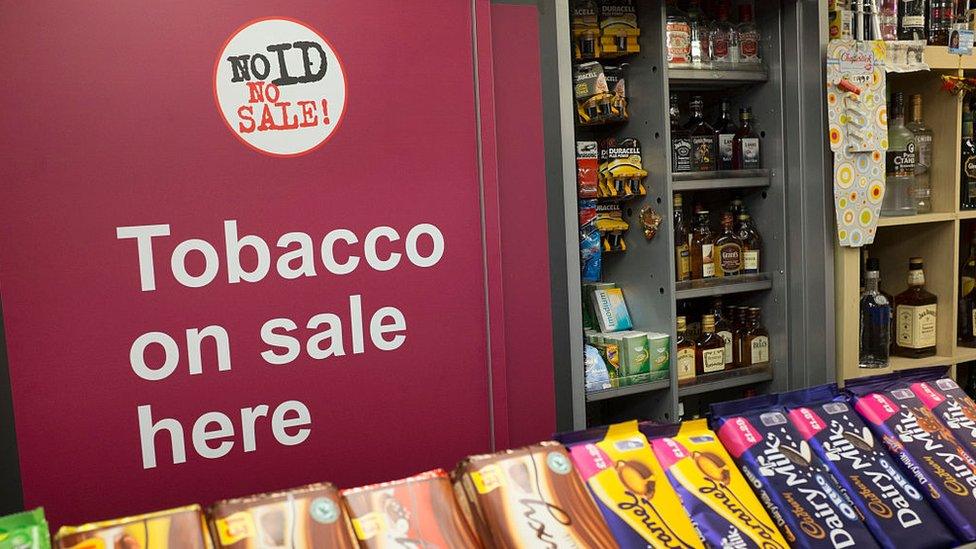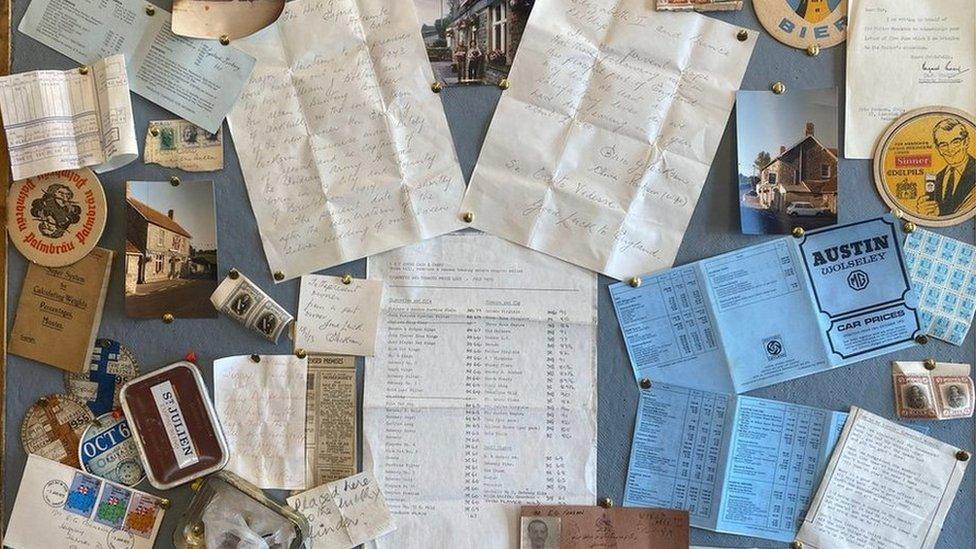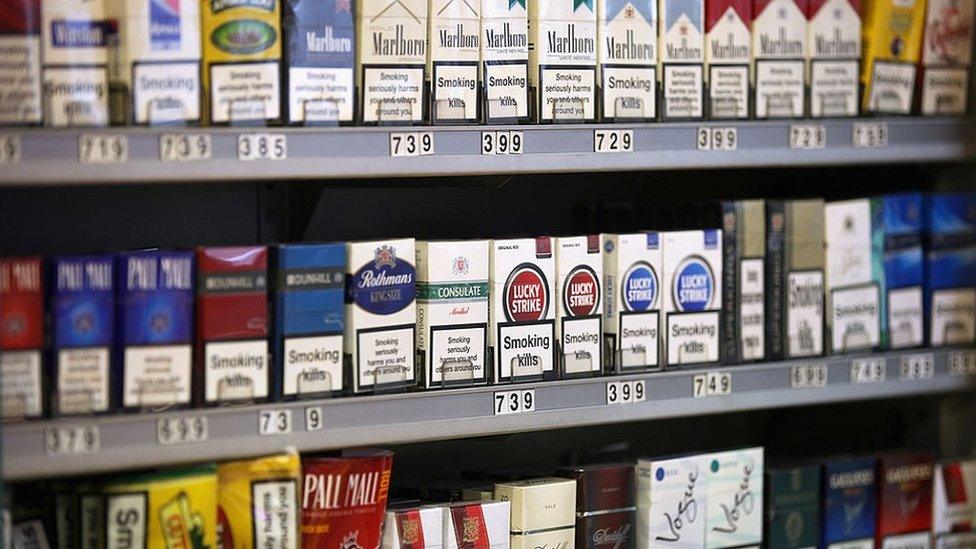Bristol study finds shops 'undermining' tobacco display ban
- Published

Retailers are legally required to hide tobacco products from view
Tobacco display bans are being "undermined" by "highly visible" smoking paraphernalia and e-cigarettes in shops, a new study suggests.
Researchers from the University of Bristol visited 133 shops in Bristol and Cambridge to examine displays.
They found that 96 percent of them had smoking items on show, something they said could encourage children to smoke.
The UK tobacco display ban in 2015 was welcomed by campaigners but criticised by shopkeepers.
The rules were put in place due to evidence suggesting that displays are linked to increased smoking and greater susceptibility to smoking in children.
But researchers who took part in the University of Bristol study, published in the journal Tobacco Control, external, said smaller shops and supermarkets are not following the guidance.
They said signage was present in most stores and that many had "visible pricing" with more than 53 percent of stores using some sort of promotional material for e-cigarettes.
"Our results show that e-cigarette and smoking paraphernalia point-of-sale displays are near ubiquitous and highly visible in supermarkets and convenience stores in two cities in England," they said.
"The high frequency and visibility of these displays could be undermining the effectiveness of the tobacco point-of-sale display ban.
"Their impact on smoking in children merits urgent attention."

Follow BBC West on Facebook, external, Twitter, external and Instagram, external. Send your story ideas to: bristol@bbc.co.uk , external
- Published12 June 2021

- Published25 February 2020

- Published8 July 2019

- Published30 November 2016
